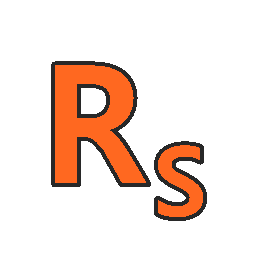
About Course
Queueing Theory For Computer Scientists
In computer systems, queues occur in front of almost all systems and components, such as CPUs, disks, switches, links, and servers. This first course designed for computer science students will help you to understand the impact of your design decisions on the response times and buffering required at various resources. Most of the techniques presented here are simple (back of the envelope) techniques that can be used for quick analysis.
As a prerequisite, a basic understanding of probability and statistics is helpful. Some of it will be reviewed as needed.
To download slides or to listen to audio recordings of the lectures, please click on the lecture title.
-
- Course Introduction
- Goals of This Course
- Queueing Models: What will learn?
- Prerequisite
- Tentative Schedule
- Homeworks
- Text Book
- Other Related Topics
- Quiz 0: Prerequisites
- Course Introduction
-
- Introduction to Queueing Theory
- Basic Components of a Queue
- Kendall Notation A/S/m/B/K/SD
- Exponential/Erlang/Hyper-Exponential Distribution
- Group Arrivals/Service
- Rules for All Queues
- Little’s Law
- Stochastic Processes
- Discrete/Continuous State Processes
- Markov Processes
- Birth-Death Processes
- Poisson Distribution
- Poisson Processes
- PASTA Property
- Relationship Among Stochastic Processes
- Introduction to Queueing Theory
-
- Analysis of A Single Queue
- Birth-Death Processes
- M/M/1 Queue
- M/M/m Queue
- M/M/m/B Queue
- Other Queues
- Queueing Networks
- Open Queueing Networks
- Closed Queueing Networks
- Mixed Queueing Networks
- Product-Form Network
- General Open Network of Queues
- Closed Product-Form Networks
- Machine Repairman Model
- Central Server Model
- Types of Service Centers
- Analysis of A Single Queue
-
- Operational Laws
- Utilization Law
- Forced Flow Law
- Bottleneck Device
- Transition Probabilities
- Little’s Law
- General Response Time Law
- Interactive Response Time Law
- Bottleneck Analysis
- Asymptotic Bounds
- Operational Laws
- Mean Value Analysis and Related Techniques
- MVA Steps
- MVA Assumptions
- Review of key queueing theory concepts
Course Content
Queueing Theory For Computer Scientists
-
Introduction to Queueing Theory: Part 1
00:00 -
Introduction to Queueing Theory: Part 2
00:00 -
Analysis of A Single Queue
00:00 -
Queueing Networks
00:00 -
Operational Laws for Computer Systems Performance Evaluation: Part 1
00:00 -
Operational Laws for Computer Systems Performance Evaluation: Part 2
00:00 -
Mean Value Analysis and Related Techniques: Part 1
00:00 -
Mean Value Analysis and Related Techniques: Part 2
00:00
Student Ratings & Reviews

No Review Yet
